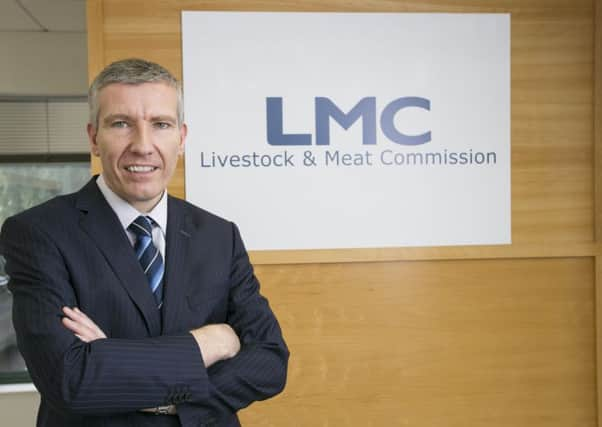Industry is ready for business - LMC


Looking back on 2019, he commented on the challenging year that the red meat industry faced.
He added: “Brexit dominated industry discussions throughout the year and the uncertainty that stemmed from a series of negotiation deadlines, threats of a no deal exit from the EU and political upheaval in the UK all added to negative sentiment in consumer markets.
Advertisement
Advertisement
“Supply chain revenues took a significant dip as meat market prices in the UK and EU came under pressure and global prices for hides and skins also fell to the floor. Red meat also attracted a huge amount of unfair and unsubstantiated criticism from a range of ill-informed commentators and self interest groups.
“Despite this backdrop, the UK red meat industry and its levy bodies made good progress in 2019 in telling the true and positive story about our livestock and meat industry’s sustainability, contribution to climate change mitigation and its ability to help feed a growing global population’s demand for dietary protein.”
“Looking to the main areas in the world where demand is growing it is encouraging that Chinese and UK authorities agreed a protocol in 2019 for UK beef exports to China and our industry looks forward to servicing this important market in 2020 and beyond.
“As an organisation which provides services to beef and sheep farmers and processors LMC is acutely aware of the importance of the beef and lamb industry to the Northern Ireland economy, rural society and the countryside which we all enjoy.”
Advertisement
Advertisement
The Commission’s chief executive confirmed that 2020 is a milestone year when big decisions will be taken by UK Government around the future relationship of the UK with the EU, future UK trade policy with countries outside the EU and the future shape and funding of domestic agriculture policy in the UK.
He continued: “Ideally we will have local Executive Ministers from Northern Ireland who can play an active role in influencing those policies and reflecting the economic and societal interests of Northern Ireland to Westminster decision makers.”
Concluding, Mr Stevenson said: “LMC will continue to educate our young people in Northern Ireland schools on the importance of including beef and lamb in the diet. We will also promote the quality, versatility and values of Northern Ireland farm quality assured beef and lamb at home and abroad.
“All stakeholders with an interest in the UK agri-food industry must work more collaboratively and strategically than perhaps they have ever done in the past if the post-Brexit era is to be one that works successfully for our industry and delivers positive outcomes for society.”
Advertisement
Advertisement
Meanwhile Farmers for Action (FFA) has welcomed the new year with calls for Stormont to get back up and running. Such a development, it is believed, will make it easier to secure the introduction of guaranteed farmgate prices in Northern Ireland. These would cover the cost of production incurred by farmers but would also include an additional margin, which would put production agriculture on a more sustainable footing. According to FFA, these prices would be reviewed on a quarterly basis.
The organisation is also calling for a halt to beef imports from countries like Brazil. This assertion is based on the claim that the UK and the rest of Europe are self sufficient in beef while beef produced in countries like Brazil has an excessive Carbon Footprint.
Turning to Brexit, FFA officebearers believe that the creation of a trade border down the Irish Sea would be ‘obstructive’ and represents a ‘political failure’ on the part of the UK government.
An FFA spokesperson said: “It is certain to give those exporting and importing goods to and from GB and the EU additional transport and custom clearance expense.”